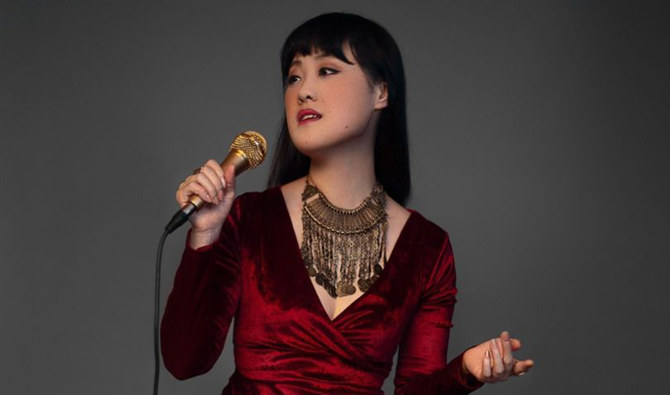
- ARAB NEWS
- 04 Jul 2025

Ameera Abid
JEDDAH: Singer Nahomi Koyasu has mixed her Japanese roots with the Arabic language and become known as her country’s answer to the legendary Lebanese artist Fairouz.
“Fairouz Al Yabbaniya” (Japanese Fairouz) had been listening to Arabic songs for years. She then began translating classic 1970s and 1980s pop songs into Japanese and performed them to the original music.
Koyasu said she had listened to Arabic instrumental music and songs since she was in university.
“It was amazing. The beautiful songs for me mean feelings of nostalgia and comfort because of the way Arab music and singing has such elaborate expression.
“In the beginning, I would try and mimic the sounds I would hear and try and write Arabic in Japanese, but really quickly I realized that Arabic alphabets were not enough to represent Arabic pronunciation.”
She began studying at the Arabic Islamic Institute in Tokyo and marveled over how different the two languages were.
“The only common ground between the two languages is that Japanese was written from right to left until before the end of World War II. Other than that, Japanese and Arabic have completely different pronunciations and word order.”
Her musical journey took her to Tunisia as her professor, who taught a music culture class, provided her with an opportunity to go to the north African country to learn its vocal style.
“Unfortunately my time there lasted only three months because of the Jasmine Revolution in 2010 and I was forced to stop.”
After some training, she started gaining a reputation for singing Arabic songs in Japanese.
She was also a part of the popular TV show “Arab Idol” during its third season, where she gained her reputation as the Arab singer who sang songs by Fairouz.
Her drive to sing translated songs came from wanting to share her passion with her fellow Japanese citizens.
“I thought that maybe people didn’t listen to Arabic songs because they didn’t understand them, that’s why I translated the songs I liked the most, it was unique and very different from the Western style of songs my country is used to hearing as well as Japanese pop.”
Her translations took a lot of time and effort to execute as she wanted to translate the lyrics in a way that conveyed their their feeling as well as their literal meaning. So, she deferred to Arabs who spoke Japanese to get second opinions on the words she was choosing.
Koyasu thought that merging both cultures would bring about an interesting contrast.
“I feel like, as long as people respect each other and approach the other culture with curiosity, it will be very interesting. Cultural exchange is necessary to know the differences and appreciate them.”
She wants to create original pieces that will be appreciated by both Arab and Japanese people.
“I want to introduce Arab culture to Japan more. To achieve my goal, it is necessary for me to stay in Saudi Arabia and communicate with the natives.”